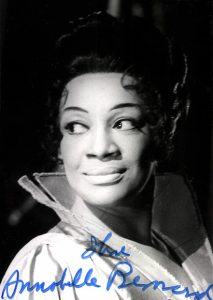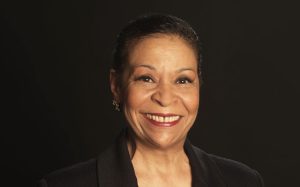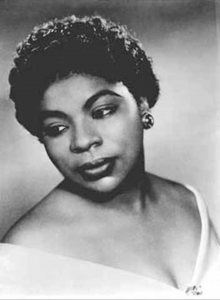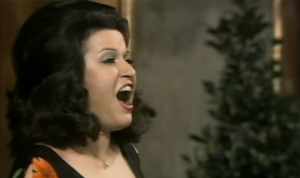Podcast: Play in new window | Download (Duration: 1:02:30 — 65.4MB) | Embed
Subscribe: Spotify | TuneIn | RSS | More
Last week we celebrated the 97th birthday of our Ur-Diva, Leontyne Price. And today, continuing my Black History Month 2024 theme of “Forgotten Divas,” I present to you a Verdi soprano of similar repertoire and voice to Miss Price, Annabelle Bernard (1935-2005), whose career, unlike Price’s, was centered primarily in Europe, specifically at the Deutsche Oper in Berlin, where she was a member of the company for nearly forty years. Born in New Orleans, she received her early musical training from Earl Hogan (uncle of the famous composer and conductor Moses Hogan) and Sister Mary Elise Sisson, whom Bernard herself credited with being her formative and primary musical inspiration. With the patronage of Edith Rosenwald Stern, an heiress to the Sears-Roebuck fortune, Bernard found early success in Europe, winning second prize in the Munich ARD Competition in 1960, settling in Berlin in 1962. Annabelle Bernard was married to the German tenor Karl-Ernst Mercker (1933-2021), who in addition to appearing alongside her in many performances and productions, was also a fierce advocate for his wife during her tenure in Berlin, when she would encounter racism. The two of them retired to New Orleans in 1998, where Bernard became a voice teacher at Xavier University, her alma mater. This episode includes rare live clips of the soprano in works by Verdi, Mercadante, and Dallapiccola, as well as from her sole commercial recording, excerpts from Porgy and Bess in German alongside the iconic African American baritone Lawrence Winters, released in 1964, the year before Winters’s untimely death. Mercker’s strong lyric tenor is also featured in a few brief excerpts, but the main focus is on the radiant voice and artistry of Annabelle Bernard. Believe me when I tell you that I remain on the lookout for further recordings of this magnificent artist!
Countermelody is a podcast devoted to the glory and the power of the human voice raised in song. Singer and vocal aficionado Daniel Gundlach explores great singers of the past and present focusing in particular on those who are less well-remembered today than they should be. Daniel’s lifetime in music as a professional countertenor, pianist, vocal coach, voice teacher, and journalist yields an exciting array of anecdotes, impressions, and “inside stories.” At Countermelody’s core is the celebration of great singers of all stripes, their instruments, and the connection they make to the words they sing. By clicking on the following link (https://linktr.ee/CountermelodyPodcast) you can find the dedicated Countermelody website which contains additional content including artist photos and episode setlists. The link will also take you to Countermelody’s Patreon page, where you can pledge your monthly support at whatever level you can afford.







